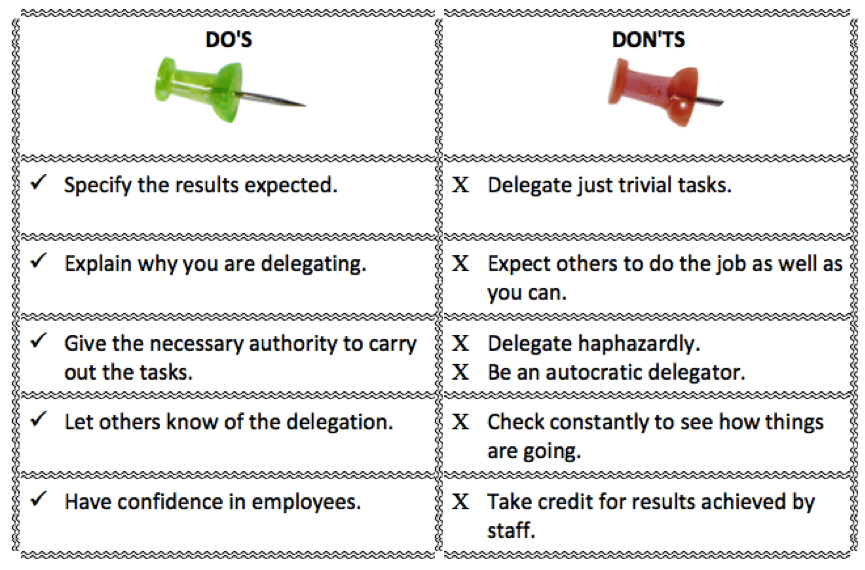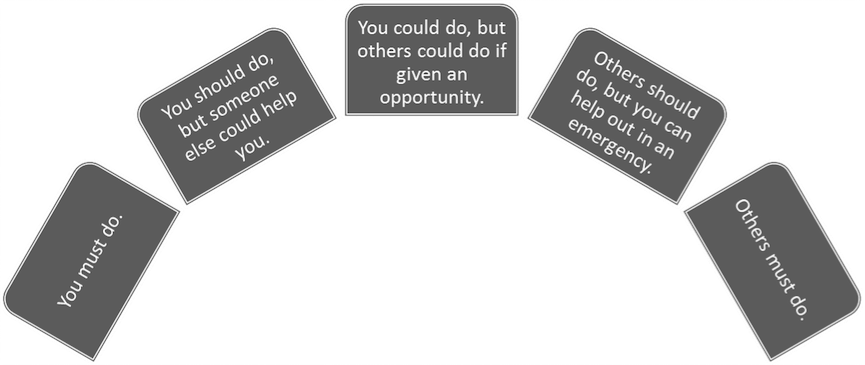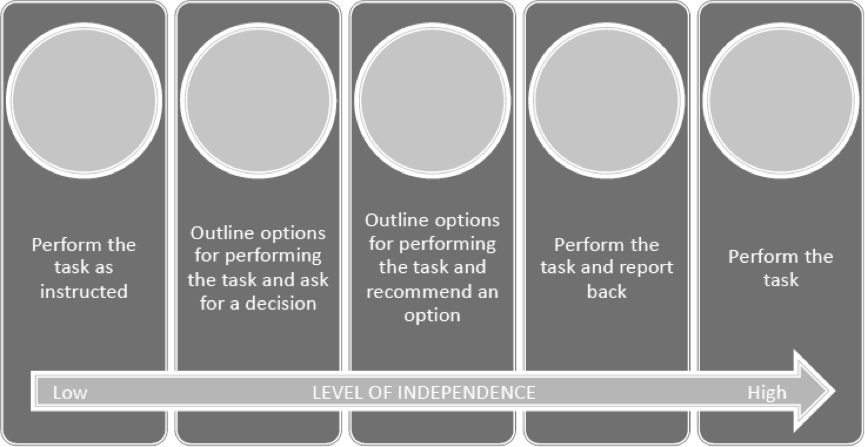To quote a rather famous Jedi, “Do or do not. There is no try”. It’s the same when it comes to delegation. So here’s our awesome, universe-wide guide to delegation that makes everyone a superhero.
What is Delegation?
“ Entrusting power and authority to a person acting as your representative.”
“Leveraging the skills of your team to help you meet your objectives”
Cynics may argue that it’s simply a way of getting your work done by other people. Bad delegation can be exactly that.
Good delegation, on the other hand, leverages the talents of other people combined with reciprocal coaching and development, lifting the performance of the whole team.
The Do’s and Don’ts of Delegation
Well, we could make it complicated, but actually, it’s pretty simple, as you can see.
When to Delegate
When should you delegate some of your work?
- After you have been in the job long enough to have a good grasp of what it entails.
- When you have completed the skills, abilities, and interests inventory of your team members.
- When you understand the value of delegating.
“To D or not to D, that is the question”, to paraphrase another famous person.
What to Delegate
Part of preparing to delegate is deciding what tasks you can and cannot delegate. Tasks can generally be placed in one of five categories.
What tasks should you delegate?
- Tasks that can be handled adequately by team members.
- Tasks for which team members have all the information for decision-making.
- Tasks that don’t require skills unique to you or your position.
- Tasks for which an individual other than you can have direct control over the task.
- Tasks and/or projects that will contribute to the growth and development of the individual.
What tasks should you NOT delegate?
- The delegation process itself: Any work to be delegated should be delegated and explained by you.
- Performance evaluations and disciplinary actions: These are a managerial responsibility.
- Coaching, counseling and moral problems.
- Planning and forecasting: Some of the detail work can be done by others, such as calculations and research, however, you alone are in a position to decide how departmental goals fit in with the overall organization’s goals.
- Confidential tasks and tasks that have been specifically assigned to you by your manager.
- Complex situations: Don’t ask someone else to handle what you don’t understand yourself.
How to Delegate
Again, we could over-complicate this, but the true art is making sure that we get the balance right between clarity, and muddied waters where people flounder and can’t see where they are going.
Instructions can be tricky. There are three ways to give someone instructions and they all have pros and cons:
Orders:
- Have an immediate effect
- Are followed exactly but never exceeded
- Require prior knowledge
- Go unquestioned
- Are assumed to be right
- Allow no feedback or initiative
- Example: “Ready, aim, fire!”
Requests:
- Can take longer to be implemented
- Allow for feedback and initiative
- Promote individual development
- Are often exceeded
- Can attract criticism
- Can expose weaknesses
- Example: “Would you make sure you are in your office and ready to start work by 8 a.m. every day?”
Suggestions:
- Produce a slow response
- Risk no response at all
- Cannot be specific
- Promote self-motivation
- Inspire initiative
- Example: “We need to reorganize the filing cabinet so the files are compatible with the filing system on the computer.”
All three can be useful. If it is a crisis that’s time-critical, then orders may suit best. If it is aimed at a specialist with a specific knowledge set, then a suggestion could work, where they work out the detail. Working on your emotional intelligence is also a great way to gauge the situation (How to develop your emotional intelligence).
We are all want to encourage independence in the workplace and would love to be able to suggest a task or action in a cool, collaborative sort of way, and then have it “happen”. Circling back to our Do’s of Delegation, this is a great approach at the right time for the right people, but as long as they are in the right place on the delegation chart below. If someone is on the left level (for example, they are new to the role), then delegating with a quick suggestion thrown over your shoulder is not going to cut it.
Levels of Delegation
Monitoring Delegation
So now we come to the crux of good delegation. Just because we have delegated a task or project does NOT mean that it is no longer our responsibility.
It’s just as important to be available as a resource for your employees or team members and to make sure you know how they are doing. There are a number of monitoring approaches that are effective, as long as we use them in the right place on the Levels of Delegation matrix, and suit the team member.
1. Assignment Log
Identify milestones in the project/task and then develop a system for tracking what tasks are assigned to whom and when they are to be completed.
2. Personal Follow-Up
Informal methods of follow-up are very effective. An assignment you ask about frequently is more important than the one you mention once but never monitor. Your interest must be sincere to be effective.
3. Sampling Techniques
Depending on the type of work, you may ask for a sample of the work to monitor quality, such as a report, or sit on a meeting the employee is chairing.
4. Progress Reports
Similar to a tracking log, except this time the onus is on the employee to include steps taken and difficulties in execution.
5. Management by Exception
This is based on the idea that controls are only needed when there is a deviation from set standards. In this way, you focus on unacceptable problems rather than try to monitor everything. However, don’t use this method if difficulties are hard to spot, a single error could be significant, or the employee is inexperienced.
Summary
We can all unleash the power of the force of delegation, with the 7 Golden Rules of Good Delegation:
Rule 1: Explain why the job is important.
Rule 2: Describe what is needed in terms of results (not how, but what), including performance standards.
Rule 3: Give the person the authority they need to do the job.
Rule 4: Indicate when the job needs to be completed and get an agreement.
Rule 5: Ask for feedback to ensure understanding.
Rule 6: Establish a process for monitoring progress.
Rule 7: Establish rewards and recognition.
So there we have it: the why, when, and how of good delegation. May the force be with you.
Andrie Steliou
Latest posts by Andrie Steliou (see all)
- 8 Ways to Help Keep Your Child Focused and Engaged in Online Learning - October 19, 2022
- How to Improve Social Intelligence Skills? - May 10, 2022
- How to Improve Organizational Skills at Workplace? - May 6, 2022





